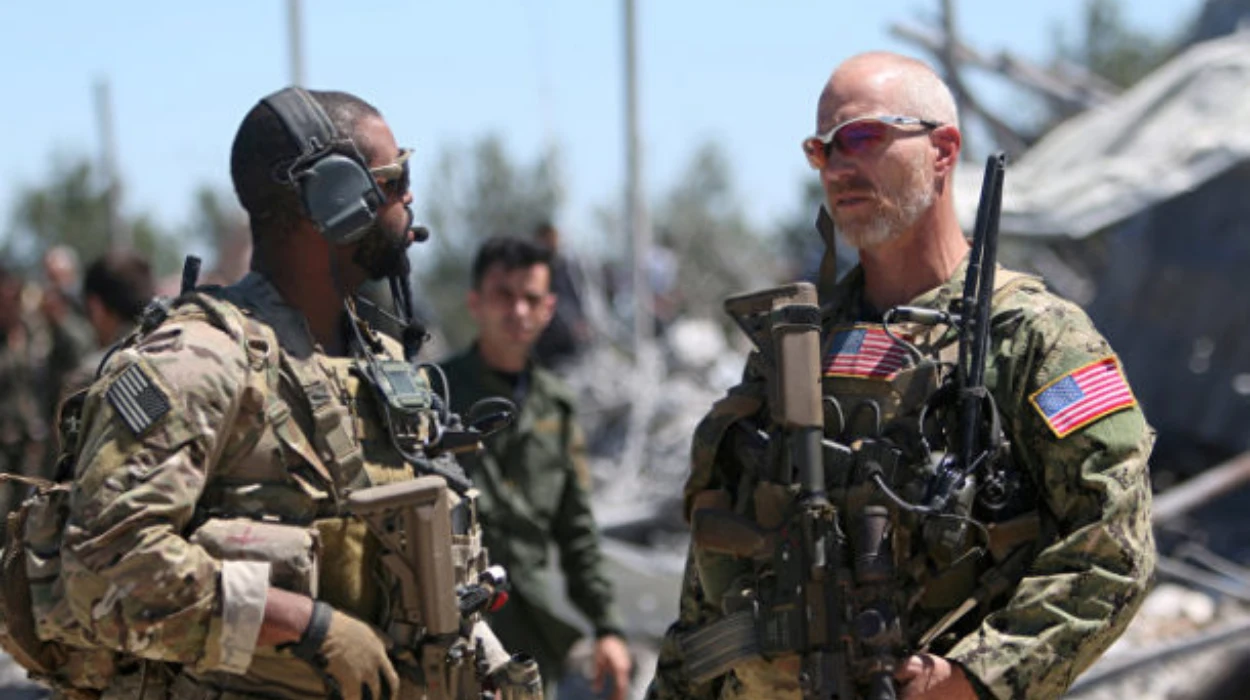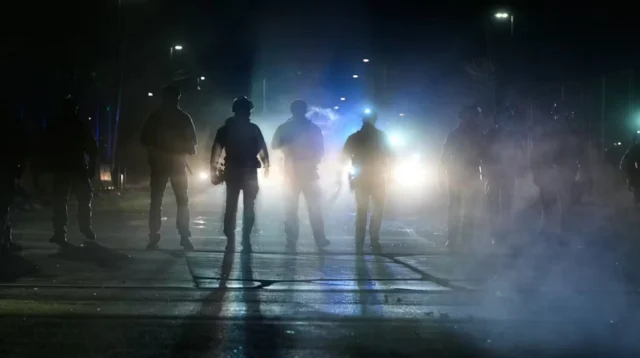One of President Donald Trump‘s (August 2025) proposals to rename the U.S. Department of Defense as the Department of War has spurred the re-examination of how perceptual elements of military identity influence foreign policy.
Trump has argued that the name “Defense” lacks clarity about America’s true strategic posture and misrepresents the country’s willingness to use military force. We would like to be defensive, but we would also like to be offensive also, when necessary, said Zelensky, returning to the earlier terminology of 1789-1947.
The logic of the changed name to be proposed lies much in references to an imagined golden age of American military achievement. When Trump and current Secretary of Defense Pete Hegseth speak of the United States victories in World War I and World War II, both cite the United States traditions of the War Department. Their framing presupposes that a symbolic revival of past nomenclatures can reassert American resilience in the face of the current dynamically evolving security challenges. Trump has gone to the extent of suggesting that he may not go to Congress and that the people will understand what he is doing here and that he has a great deal of legislative support over the long run.
Institutional memory and civilian oversight
The Department of Defense received its present name in 1947, under the National Security Act. This was a deliberate attempt to change the nomenclature of the War Department to the importance of civilian leadership in command and strategic deterrence as well as peaceful relations and international cooperation as promoted by the Truman administration following the end of the two world wars and the emergence of nuclear threat. Such rebranding resonated with Cold War exigencies that were keen on ensuring stability and the ability to tell allies as well as enemies.
Academic critics argue that reverting to “Department of War” could damage those postwar reforms. Professor Matthew J. Schmidt of the University of New Haven has pointed out that the name change risks contradicting the military’s modern ethical commitments and may alter how force is conceptualized in U.S. strategic doctrine. Names, Schmidt notes, carry institutional weight—they shape culture, planning, and perception both inside and outside the Pentagon.
Civilian oversight, a cornerstone of post-1945 U.S. military structure, could also face increased scrutiny if the shift is perceived as favoring a more aggressive national security orientation. Critics caution that such rhetoric may suggest reduced emphasis on deliberation and multilateralism, and increased comfort with unilateral power projection.
Congressional debate and public reactions
Any change to the Department’s name would legally require congressional approval, as it is codified in U.S. federal statute. Nonetheless, Trump’s allies in Congress have begun to support the initiative. Senator Mike Lee introduced a bill in early August backing the proposed name change, framing it as a restoration of historical accuracy and an assertion of military realism.
“It’s the only title that truly reflects the full spectrum of America’s military capabilities,” Lee stated during floor debate.
Public response remains polarized. An April 2025 survey online, promoted by Defense Secretary Hegseth had 54 percent agreeing that the name should be restored. Popularity of the poll grew following public support by prominent people like Elon Musk who described the initiative as a way back to honesty in government. But within the ranks of military veterans, historians and ex-Pentagon officials there is still a great deal of doubt. Others cite possible implications to both recruitment and morale, saying that young Americans might be deterred by the name “War Department,â Rs given the military is widely perceived as a peacekeeping or humanitarian organization.
The postwar reforms were designed to not only curb the future military adventurism but also to assure the people as well as the world that the U.S. only wanted peace through being strong not by means of strength. Turning this message around can change how this and future generations feel about the value or role of military service.
Diplomatic signals and global repercussions
Changing the name of the Pentagon has a lot of symbolic implications to the rest of the world. Allies that have depended on the U.S. as a stabilizing international presence will perceive the change as a move of the U.S. toward the reluctance of diplomacy and multilateralism. Some diplomats speaking to media in NATO countries on the condition of anonymity also voiced apprehension about the potential tensions that the proposed change may generate during a time when there is war in Eastern Europe, competition in the Indo-Pacific, and volatile energy geopolitics.
The shift in rhetoric can also achieve the same results: since it offers excuses to rival powers like China and Russia, this polarization further contributes to escalated militarization, which is already on the rise. Intelligence analysts have cautioned that adversaries might use the international branding of the intelligence community to develop the international perception that the United States is gearing to wage war instead of preventing it, complicating further international relations and weapons control efforts.
What is important in this historical context is the context itself. The name change itself that occurred in 1947 was a response to the second world war and it was done to depict a new paradigm of American leadership. Reviving the term War Department will have the converse effect, though, allowing the United States to appear as the kind of state that always has war as its primary mechanism of action.
Political motives and symbolic power
The political calculus behind the rebranding appears tied to broader efforts within Trump’s camp to reshape government identity and language. Campaign speeches and administrative rhetoric have repeatedly denounced “woke” or “soft” characterizations of state institutions. By reintroducing “War” into official nomenclature, Trump seeks to signal an unapologetically forceful posture and contrast with what he calls the “globalist weakness” of previous administrations.
Believers feel that the shift will make the U.S. stand bold in areas of strategic interest and make it regain its national pride. The critics, however, see it as a challenge that might allow more risk-taking on behalf of the civilian leadership and may aid in strengthening the interventionist policies devoid of appropriate restraints.
Political commentator Rod D. Martin captured this concern succinctly, stating,
“The renaming debate isn’t mere semantics—words channel intent. If we insist on war in our language, we’re more likely to insist on war in our practice.”
His remark underscores the idea that terminology is never neutral; it carries with it assumptions, motivations, and consequences that ripple through policy and public sentiment.
The enduring debate over America’s military identity
The idea of rebranding the Department of Defense into the Department of War is indicative of a wider ideological schism in the United States as to its role in the 21st century in the world. On the one hand, there are people who think that the demonstration of strength entails straightforward and assertive expression even at the expense of making allies uncomfortable or redefining the common moral boundaries of the military action. Opposite those are the supporters of self-restraint, use of diplomacy and importance of terminology in establishing global expectations and preserving stability.
But whatever the fate of the consequences of the change of name, whether it is implemented operationally or it is a mere formality, what it marks is the entry of a new era in discussion on power, responsibility and identity in America. The debate does not only signify the personal vision of the world by Trump, but also a wider trend when rhetoric is employed to draw strategic lines. With the tension between assertiveness and accountability and language and policy, the same will most probably characterize military discourse long after the current administration.





